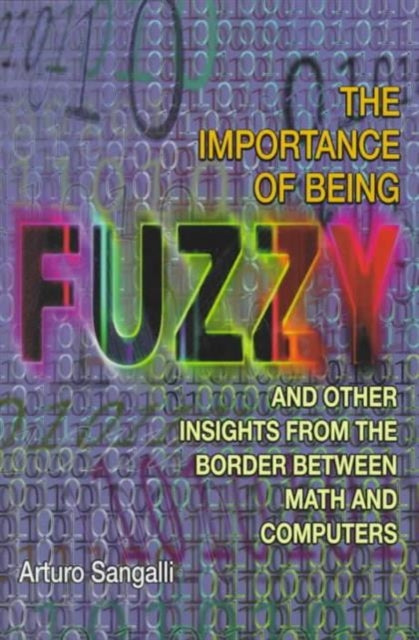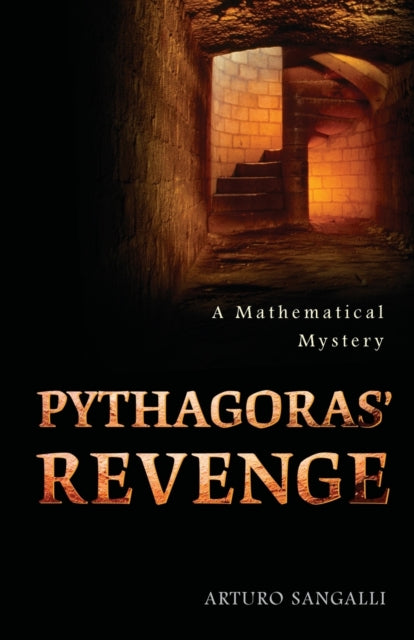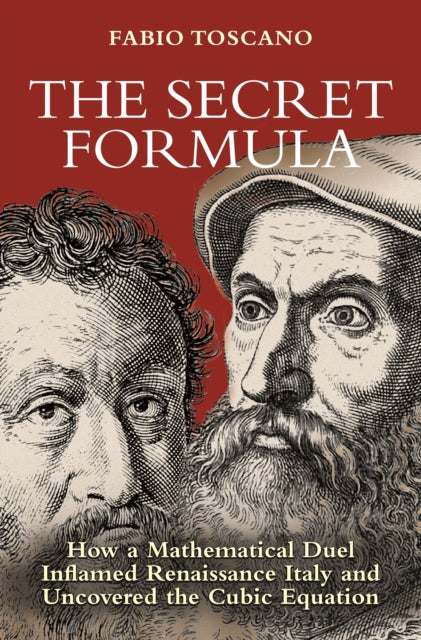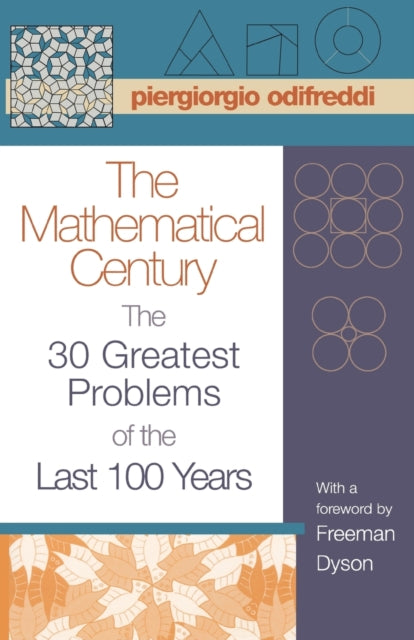Search results for ""Author Arturo Sangalli""

Princeton University Press The Importance of Being Fuzzy: And Other Insights from the Border between Math and Computers
How has computer science changed mathematical thinking? In this first ever comprehensive survey of the subject for popular science readers, Arturo Sangalli explains how computers have brought a new practicality to mathematics and mathematical applications. By using fuzzy logic and related concepts, programmers have been able to sidestep the traditional and often cumbersome search for perfect mathematical solutions to embrace instead solutions that are "good enough." If mathematicians want their work to be relevant to the problems of the modern world, Sangalli shows, they must increasingly recognize "the importance of being fuzzy." As Sangalli explains, fuzzy logic is a technique that allows computers to work with imprecise terms--to answer questions with "maybe" rather than just "yes" and "no." The practical implications of this flexible type of mathematical thinking are remarkable. Japanese programmers have used fuzzy logic to develop the city of Sendai's unusually energy-efficient and smooth-running subway system--one that does not even require drivers. Similar techniques have been used in fields as diverse as medical diagnosis, image understanding by robots, the engineering of automatic transmissions, and the forecasting of currency exchange rates. Sangalli also explores in his characteristically clear and engaging manner the limits of classical computing, reviewing many of the central ideas of Turing and Godel. He shows us how "genetic algorithms" can solve problems by an evolutionary process in which chance plays a fundamental role. He introduces us to "neural networks," which recognize ill-defined patterns without an explicit set of rules--much as a dog can be trained to scent drugs without ever having an exact definition of "drug." Sangalli argues that even though "fuzziness" and related concepts are often compared to human thinking, they can be understood only through mathematics--but the math he uses in the book is straightforward and easy to grasp. Of equal appeal to specialists and the general reader, The Importance of Being Fuzzy reveals how computer science is changing both the nature of mathematical practice and the shape of the world around us.
£40.50

Princeton University Press Pythagoras' Revenge: A Mathematical Mystery
The celebrated mathematician and philosopher Pythagoras left no writings. But what if he had and the manuscript was never found? Where would it be located? And what information would it reveal? These questions are the inspiration for the mathematical mystery novel Pythagoras' Revenge. Suspenseful and instructive, Pythagoras' Revenge weaves fact, fiction, mathematics, computer science, and ancient history into a surprising and sophisticated thriller. The intrigue begins when Jule Davidson, a young American mathematician who trolls the internet for difficult math riddles and stumbles upon a neo-Pythagorean sect searching for the promised reincarnation of Pythagoras. Across the ocean, Elmer Galway, a professor of classical history at Oxford, discovers an Arabic manuscript hinting at the existence of an ancient scroll--possibly left by Pythagoras himself. Unknown to one another, Jule and Elmer each have information that the other requires and, as they race to solve the philosophical and mathematical puzzles set before them, their paths ultimately collide. Set in 1998 with flashbacks to classical Greece, Pythagoras' Revenge investigates the confrontation between opposing views of mathematics and reality, and explores ideas from both early and cutting-edge mathematics. From academic Oxford to suburban Chicago and historic Rome, Pythagoras' Revenge is a sophisticated thriller that will grip readers from beginning to surprising end.
£16.99

Princeton University Press The Secret Formula: How a Mathematical Duel Inflamed Renaissance Italy and Uncovered the Cubic Equation
The legendary Renaissance math duel that ushered in the modern age of algebraThe Secret Formula tells the story of two Renaissance mathematicians whose jealousies, intrigues, and contentious debates led to the discovery of a formula for the solution of the cubic equation. Niccolò Tartaglia was a talented and ambitious teacher who possessed a secret formula—the key to unlocking a seemingly unsolvable, two-thousand-year-old mathematical problem. He wrote it down in the form of a poem to prevent other mathematicians from stealing it. Gerolamo Cardano was a physician, gifted scholar, and notorious gambler who would not hesitate to use flattery and even trickery to learn Tartaglia's secret.Set against the backdrop of sixteenth-century Italy, The Secret Formula provides new and compelling insights into the peculiarities of Renaissance mathematics while bringing a turbulent and culturally vibrant age to life. It was an era when mathematicians challenged each other in intellectual duels held outdoors before enthusiastic crowds. Success not only enhanced the winner's reputation, but could result in prize money and professional acclaim. After hearing of Tartaglia's spectacular victory in one such contest in Venice, Cardano invited him to Milan, determined to obtain his secret by whatever means necessary. Cardano's intrigues paid off. In 1545, he was the first to publish a general solution of the cubic equation. Tartaglia, eager to take his revenge by establishing his superiority as the most brilliant mathematician of the age, challenged Cardano to the ultimate mathematical duel.A lively account of genius, betrayal, and all-too-human failings, The Secret Formula reveals the epic rivalry behind one of the fundamental ideas of modern algebra.
£20.00

Princeton University Press The Mathematical Century: The 30 Greatest Problems of the Last 100 Years
The twentieth century was a time of unprecedented development in mathematics, as well as in all sciences: more theorems were proved and results found in a hundred years than in all of previous history. In The Mathematical Century, Piergiorgio Odifreddi distills this unwieldy mass of knowledge into a fascinating and authoritative overview of the subject. He concentrates on thirty highlights of pure and applied mathematics. Each tells the story of an exciting problem, from its historical origins to its modern solution, in lively prose free of technical details. Odifreddi opens by discussing the four main philosophical foundations of mathematics of the nineteenth century and ends by describing the four most important open mathematical problems of the twenty-first century. In presenting the thirty problems at the heart of the book he devotes equal attention to pure and applied mathematics, with applications ranging from physics and computer science to biology and economics. Special attention is dedicated to the famous "23 problems" outlined by David Hilbert in his address to the International Congress of Mathematicians in 1900 as a research program for the new century, and to the work of the winners of the Fields Medal, the equivalent of a Nobel prize in mathematics. This eminently readable book will be treasured not only by students and their teachers but also by all those who seek to make sense of the elusive macrocosm of twentieth-century mathematics.
£25.20




